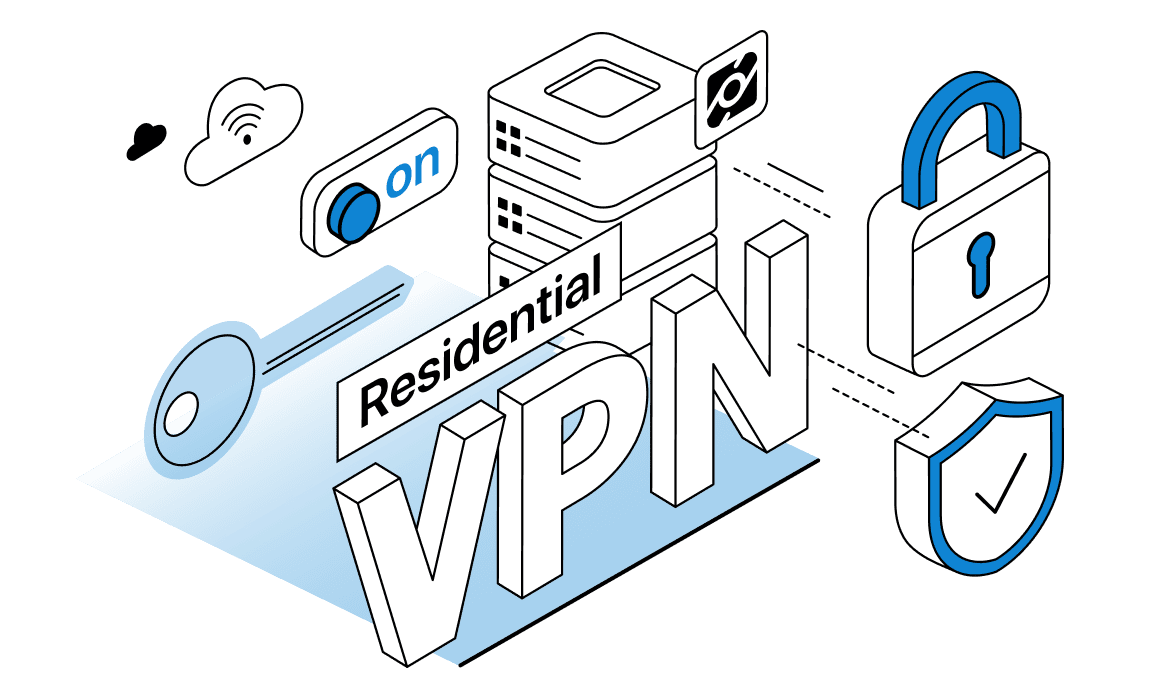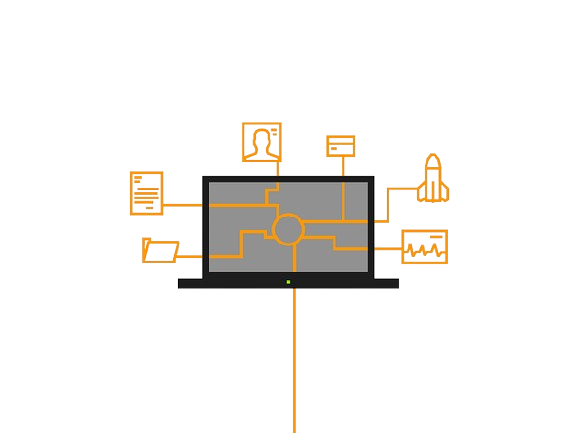
What is a Residential VPN?
A residential VPN is a VPN service that routes your internet traffic through residential IP addresses instead of a VPN server, like regular VPNs do. This is usually done on a peer-to-peer (P2P) basis. This means users share their own IP addresses to get access to other users’ IP addresses.
Residential VPNs are considered secure because they don’t use data centers, which can be hacked. Since you get a residential IP address from an ISP (Internet Service Provider), it often avoids detection by services that block or limit VPN use.
However, residential VPNs are often slower and less reliable than regular VPN services and tend to be more expensive. Also, if someone using your IP address breaks the terms of service or other agreements, you might not be able to access those services on your own network.
What is a Residential IP Address?
A residential IP address is the IP address given by ISPs to people living in residential areas. For example, if you check your IP address without a VPN, you’ll see the address assigned to you by your ISP. This is your residential IP.
ISPs link user activity to these IP addresses, making them seem more credible. Therefore, using a residential VPN can make it easier to access various websites and services compared to other types of VPNs.
How Does a Residential VPN Work?
A residential VPN sends your internet traffic through a residential IP address different from your actual IP. Some residential VPN services own their IP network, but usually, users agree to share their IP address to access other users’ IPs.
This means there is no need for a VPN server since devices owned by users connect directly to change your actual IP address and protect your traffic. Essentially, every device in the network acts like a VPN server.
When you sign up for a residential VPN, you agree to be part of this network by accepting the User Agreement or Terms and Conditions. If you don’t want to share your IP with other users, make sure to read everything carefully before using a residential VPN.
There’s nothing inherently wrong with peer-to-peer networks as long as you trust the service provider. However, your connection speed might be slower than with a regular VPN, and you won’t know what other users are doing with your IP address.
What is the Difference Between a Regular VPN and a Residential VPN?
The main difference between a residential VPN and a regular VPN is where they get their IP addresses. Residential VPNs use a P2P network and route your traffic through a residential IP owned by another user. Regular VPNs use servers specifically designed for VPN traffic.
Premium VPN providers like OhioVPN have optimized their systems for fast and reliable connections. On the other hand, a P2P network relies on any user-owned device acting as a server, so connection speed and reliability can vary a lot.
Both premium VPNs and residential VPNs usually offer unlimited bandwidth and good connection speeds. However, premium VPNs tend to provide more consistent results.
Residential VPNs have the advantage of their IP addresses being more credible. This means users face fewer blocks and restrictions compared to using free VPNs. Premium VPN providers invest a lot in improving user experience, so the difference in accessibility is usually not very big.
Does OhioVPN Provide Residential IPs?
No, OhioVPN does not provide residential IP addresses. Like most major VPN providers, OhioVPN routes user traffic through VPN servers and owns its infrastructure instead of using a P2P network.
If you want the benefits of OhioVPN along with the advantages of a residential VPN, you might consider getting a dedicated IP from OhioVPN. A dedicated IP address allows you to connect to the VPN with the same IP address every time, making your traffic appear as credible as a residential IP address.
Should You Get a Residential VPN?
Ultimately, whether a residential VPN is right for you depends on your needs. If you like peer-to-peer networks, it can be a good alternative to traditional VPNs, offering potential good speeds and unrestricted internet access.
However, traditional VPN services are still top-rated because they offer features like strong encryption, large server networks, modern VPN protocols, and many additional benefits. If you want the best overall VPN experience, a premium VPN is likely your best choice.

Hi, I’m Chibuzor Abraham from Nigeria. I love technology, especially VPNs, which protect your online privacy. I manage Ohiovpn.us, where I review VPN services for Ohio. Our reviews look at speed, security, and ease of use to help you find the best VPN. If you buy through our links, we get a small commission, which helps support our site at no extra cost to you.

